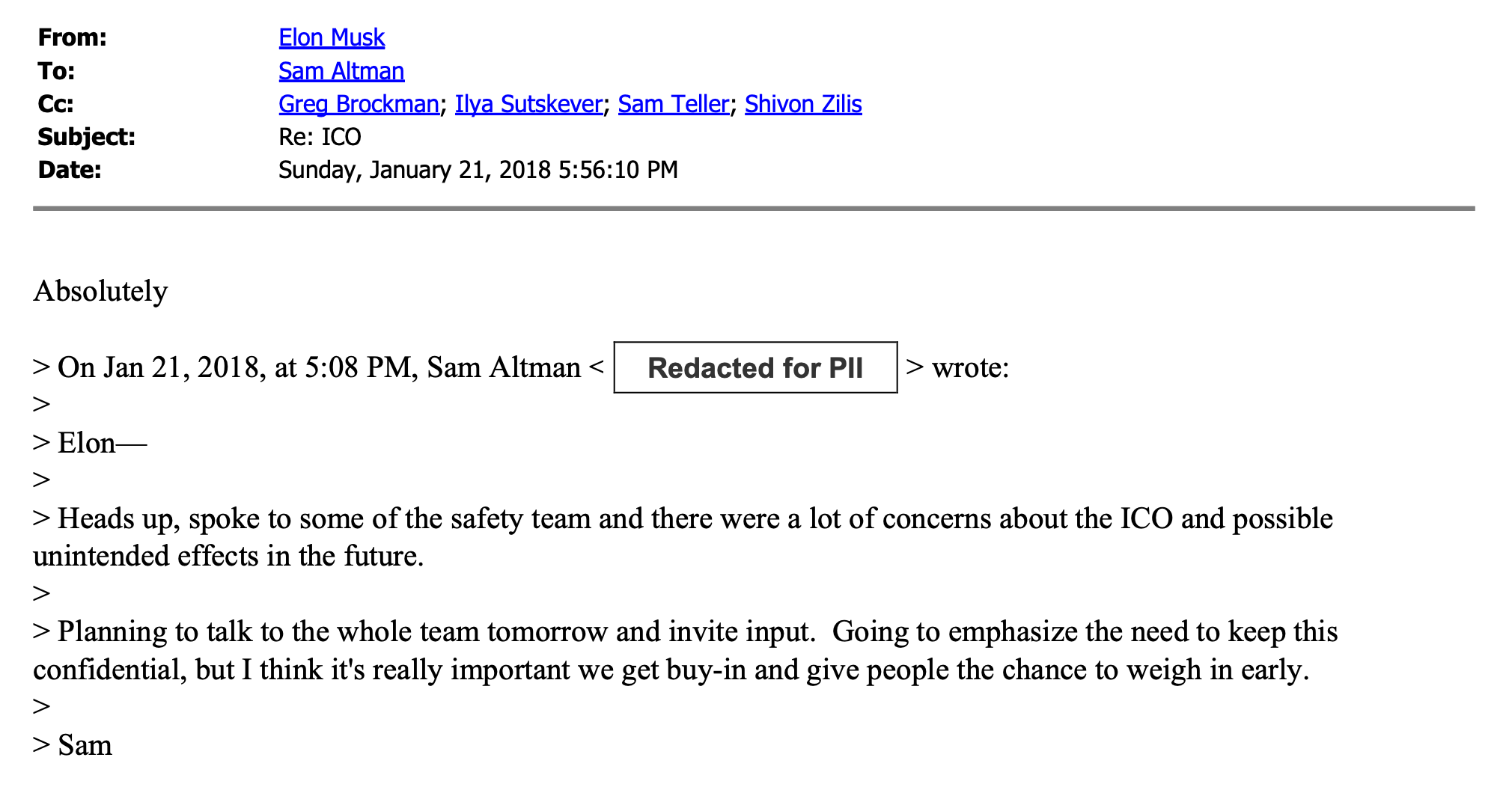The Origins of Conflict:
Musk co-founded OpenAI as a nonprofit aimed at advancing artificial intelligence for the benefit of humanity. He left in 2018 over disagreements about its direction. Since then, OpenAI transitioned to a “capped-profit” model, forming closer ties with Microsoft.
Musk co-founded OpenAI as a nonprofit aimed at advancing artificial intelligence for the benefit of humanity. He left in 2018 over disagreements about its direction. Since then, OpenAI transitioned to a “capped-profit” model, forming closer ties with Microsoft.
In the lawsuit, Musk claims he invested over $44 million in OpenAI, driven by concerns about the existential risks posed by AI. He accuses OpenAI CEO Sam Altman of leveraging the organization for personal gain, pointing to deals that allegedly benefited companies linked to Altman.
Allegations of Anticompetitive Behavior:
The updated lawsuit alleges that OpenAI, in collaboration with Microsoft, is actively undermining competitors like Musk’s xAI. OpenAI is accused of discouraging investors from funding rivals and leveraging Microsoft’s infrastructure in ways that Musk claims amount to a “de facto merger.” This arrangement reportedly gives OpenAI preferential access to Microsoft’s computing resources, while denying similar terms to xAI and others.
The updated lawsuit alleges that OpenAI, in collaboration with Microsoft, is actively undermining competitors like Musk’s xAI. OpenAI is accused of discouraging investors from funding rivals and leveraging Microsoft’s infrastructure in ways that Musk claims amount to a “de facto merger.” This arrangement reportedly gives OpenAI preferential access to Microsoft’s computing resources, while denying similar terms to xAI and others.
Musk’s legal team also alleges that cross-membership on the boards of OpenAI and Microsoft facilitated the sharing of confidential information. For example, Reid Hoffman, who served on both boards, allegedly gained insider knowledge of transactions that favored OpenAI. Hoffman stepped down from OpenAI’s board in 2023, but the lawsuit claims his dual roles created conflicts of interest.
Exclusive Deals and Monopolistic Practices:
The complaint argues that OpenAI holds a dominant position in the generative AI market, with a share estimated at 70%. The lawsuit describes this as either a monopoly or an attempt to establish one. It also criticizes exclusive arrangements between OpenAI and Microsoft, which allegedly violate antitrust laws by fostering anti-competitive behavior.
The complaint argues that OpenAI holds a dominant position in the generative AI market, with a share estimated at 70%. The lawsuit describes this as either a monopoly or an attempt to establish one. It also criticizes exclusive arrangements between OpenAI and Microsoft, which allegedly violate antitrust laws by fostering anti-competitive behavior.
Musk’s legal team highlights the role of Shivon Zilis, a former OpenAI board member, as a whistleblower. Zilis reportedly raised concerns about the company’s deals, which echoed Musk’s own criticisms. The lawsuit further notes that Zilis has longstanding professional ties with Musk and is the mother of three of his children.
Disputes Over OpenAI’s Original Vision:
Musk contends that OpenAI has strayed far from its nonprofit roots. The lawsuit underscores Musk’s opposition to a proposed initial coin offering (ICO) in 2018, which he believed would undermine trust in OpenAI. Musk also accuses the organization of failing to uphold its commitment to transparency and public access to its research.
Musk contends that OpenAI has strayed far from its nonprofit roots. The lawsuit underscores Musk’s opposition to a proposed initial coin offering (ICO) in 2018, which he believed would undermine trust in OpenAI. Musk also accuses the organization of failing to uphold its commitment to transparency and public access to its research.
Microsoft’s Role and Broader Implications:
The lawsuit calls attention to Microsoft’s substantial influence over OpenAI. The tech giant invested $13 billion in OpenAI in exchange for a significant share of its profits. OpenAI relies heavily on Microsoft’s cloud infrastructure to train and deploy its models, including ChatGPT. The complaint alleges this partnership prioritizes profits over OpenAI’s mission.
The lawsuit calls attention to Microsoft’s substantial influence over OpenAI. The tech giant invested $13 billion in OpenAI in exchange for a significant share of its profits. OpenAI relies heavily on Microsoft’s cloud infrastructure to train and deploy its models, including ChatGPT. The complaint alleges this partnership prioritizes profits over OpenAI’s mission.
OpenAI’s Response:
OpenAI has dismissed Musk’s claims as “loud and baseless,” arguing that the allegations lack merit. The organization is seeking to have the lawsuit dismissed.
OpenAI has dismissed Musk’s claims as “loud and baseless,” arguing that the allegations lack merit. The organization is seeking to have the lawsuit dismissed.
 News
News
 Games
Games
 Software
Software
 Music
Music
 Technology
Technology
 Hardware
Hardware
 eSports
eSports
 AI-Artificial Intelligence
AI-Artificial Intelligence
 Internet
Internet
